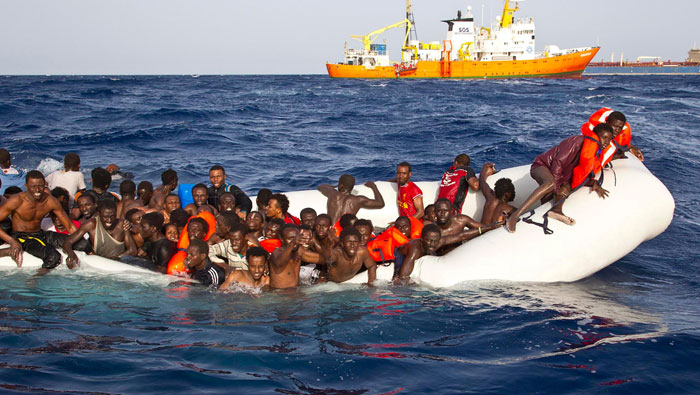
Rome: Italy is bracing for an expected rush of boat migrants this summer as the European Union's failed relocation programme ratchets up pressure on the country's shelter system, a top immigration official said.
Mario Morcone, the official in charge of managing Italy's immigration system, told Reuters that arrivals were up slightly this year over 2015, when more than 150,000 migrants came by boat, mostly from Libya.
As of Monday, about 25,000 boat migrants had come to Italy, compared with just under 24,000 during the same period last year, an increase of 4.7 per cent, according to the Interior Ministry.
With calmer seas now favouring more crossings, Italy is trying to create 150,000 spots for asylum seekers and migrants in its shelters, where 112,700 are already housed.
"It's getting more and more complicated to find places and open new immigration centres," Morcone said in his office at the Interior Ministry.
According to an EU relocation programme for refugees, up to 40,000 asylum seekers from Syria, Eritrea and Iraq can be shifted to other member countries over two years to help relieve pressure on Italy, a frontline state in Europe's worst immigration crisis since World War Two.
Since the plan took effect in October, however, Italy has found spots for just 560 people, Morcone said, because of a lack of solidarity from partners and the programme's focus on only the three nationalities it specifies.
"Member states are offering only a few spots, the procedures are very slow, and we can relocate only Eritreans. Syrians don't come here, and nor do Iraqis," Morcone said. "On the whole, the response... is not what had been asked for."
Turkey and the EU last month sealed a controversial deal intended to halt illegal migration to Greece from Turkey in return for financial and political rewards for Ankara.
The deal aims to shut down a short sea corridor that brought over 850,000 refugees and migrants to Europe last year. Countries along the so-called "Balkan route" have closed their borders to stop movement there as well.
Italy is concerned that the migrant flow will shift after the agreement, with more boats coming to Italy from North Africa, and especially from Egypt.
"Already three or four boats have arrived from Egypt this year," Morcone said. "Egypt could be the main worry."
"Since there are people blocked in Greece, we fear that there will be a bypass either through Egypt or Albania or even from Morocco to Spain. We must wait and see how the situation evolves."
Because the Mediterranean sea journey to Italy mainly consists of young people from impoverished African countries seeking a better future, Europe must develop a long-term migrant policy focused on Africa.
"As long as the economic divergence between us is so high, it's impossible to convince people who suffer in some African countries not to come in Europe. Their hopes for a future lie in getting into the Schengen area."